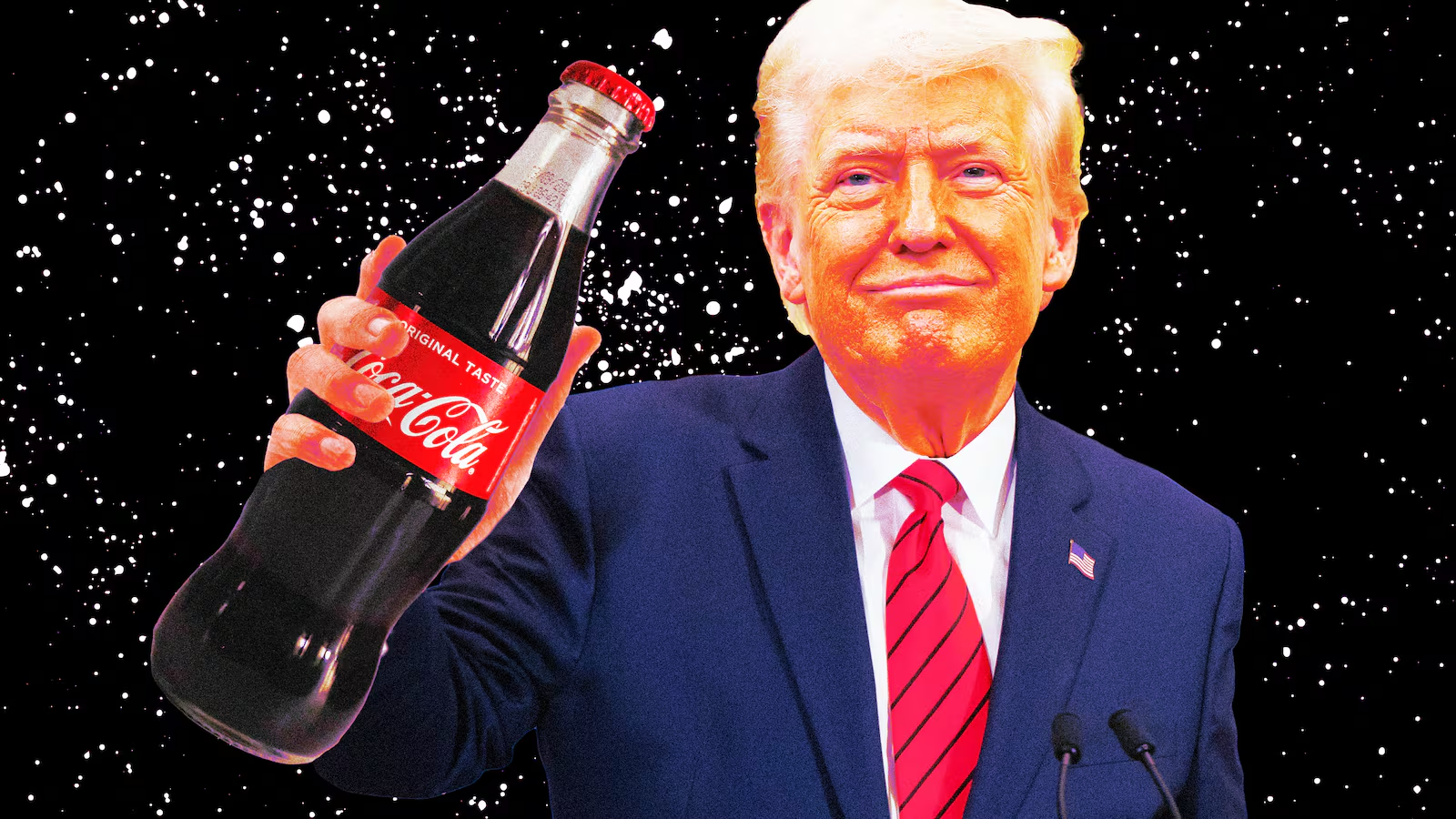Washington– Former President Donald Trump asserted on Wednesday that Coca-Cola has agreed to transition from high-fructose corn syrup to genuine cane sugar in its Coca-Cola products sold in the United States. He hailed this alleged change as a victory for both taste and public health. However, the beverage giant has not explicitly confirmed any such formula modification, responding with a carefully worded statement that stops short of acknowledging Trump’s claim.
“I have been talking to Coca-Cola about using REAL Cane Sugar in Coke in the United States, and they have agreed to do so,” Trump declared in a post on Truth Social. He added, “You’ll see that this will be a really smart move on their part. It’s just superior!”
Despite Trump’s definitive announcement, Coca-Cola has offered no direct confirmation of a formula change. When questioned by NBC News, a company representative provided a diplomatic response: “We value President Trump’s passion for our legendary Coca-Cola brand. We’ll be sharing more information shortly about our Coca-Cola product line’s unique new products.” This statement leaves room for interpretation and does not directly address the switch to cane sugar for their flagship Coke product in the US.
Sweetener Preferences and Health Debates
Since 1984, Coca-Cola has predominantly used high-fructose corn syrup (HFCS) as a sweetener in the US, primarily due to its availability and cost-effectiveness. In contrast, international versions of the soda, particularly those sold in Mexico and Europe, commonly utilize cane sugar. This difference has cultivated a devoted following of “Mexican Coke” enthusiasts who maintain that the cane sugar version offers a cleaner and smoother taste.
The push to reintroduce cane sugar aligns with the objectives of Trump’s recently approved health plan, “Make America Healthy Again,” which is purportedly supported by Robert F. Kennedy Jr., who is described as the health secretary within the initiative. This movement advocates for the elimination of artificial pigments, seed oils, and corn syrup from food products. Kennedy has been a vocal proponent of new dietary standards that prioritize whole foods and aim to reduce the consumption of processed sugar in American diets.

Economic and Nutritional Considerations
Critics, however, argue that substituting cane sugar for HFCS may not yield discernible nutritional advantages and could have negative economic repercussions. John Bode, president of the Corn Refiners Association, promptly reacted to the news, stating, “replacing high fructose corn syrup with cane sugar would cost thousands of American food manufacturing jobs, depress farm income, and boost imports of foreign sugar, all with no nutritional benefit.”
Notably, James Quincey, the CEO of Coca-Cola, has previously spoken about initiatives to lower overall sugar content across the company’s worldwide portfolio, a broader strategy that doesn’t necessarily imply a direct swap for cane sugar in all existing products.
It’s also a widely known detail that Trump himself frequently consumes Diet Coke, which contains aspartame, an artificial sweetener, and famously had a button installed on the Resolute desk in the Oval Office to summon the beverage. The alleged shift to cane sugar in standard Coca-Cola would represent a significant change for the company’s US operations if it indeed materializes as Trump claims.









